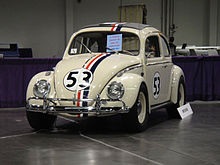 hese days it seems everyone's going nuts about how artificial intelligence will bring
about the apocalypse. But I think we need to be more optimistic. As my ever-upbeat
childhood babysitter used to say: “Walk on the sunny side of the street. It's
always darkest before the dawn!”
hese days it seems everyone's going nuts about how artificial intelligence will bring
about the apocalypse. But I think we need to be more optimistic. As my ever-upbeat
childhood babysitter used to say: “Walk on the sunny side of the street. It's
always darkest before the dawn!”
That was right before I kicked her in the shins, saying: “Enough with the mixed metaphors already!”
After that she too began talking about the apocalypse, a prominent feature of which was eternal damnation for rotten little brats.[1]
For some, the apocalypse will come after our upcoming election. Half the population will have voted for anyone but Hillary and the other half for anyone but Trump. Both candidates seem to have a nice selection of bad policy proposals in mind. But what if we could create the perfect candidate?
Well, in the future we will! Instead of voting for a specific candidate, we'll vote for various character traits and policy positions. Then on election day, an artificial person will be printed out with precisely those characteristics, in the exact proportion determined by the electorate.
They (yes, we'll have gotten rid of this silly pronoun debate by then) will truly be a complex individual, full of contradictions. Indeed, ‘they’ is appropriate—it will contain multitudes.

The original artificially intelligent car (image from Wikipedia)
In the future, of course, we won't use old-fashioned terms like ‘President.’ Our new Customer Citizen Satisfaction Manager will ensure a positive voter experience. Sort of like the Windows Customer Experience without all the broken glass.
My point is that a world with AI will be so alien that our view of it is less a prediction than an expression of our anxieties. Will we spend our days in pointless glass-bead games like deconstructing Finnegans Wake, or will we live in a computer-generated game world? Will we spend our days lying on our couch watching TV and eating Cheetos, or in a drug-, food-, and sex-induced stupor? Will we go extinct by becoming so despondent we fail to breed, or will AI kill us off?
Those are the great dilemmas that AI will instantiate for us. For sure we'll depend on AI for the intellectual heavy lifting. If superluminal travel and wormholes are possible, we will need AI to build them just as we needed steam engines to build the Panama Canal.
The self-driving car is a metaphor for what it will be like. We'll become passengers instead of drivers of our world.
So far e-intelligence is not off to a glorious start. Tesla e-cars are out there T-boning tractor trailers because they can't distinguish between white trucks and the sky. Microsoft's e-blogger Tay survived less than a day on the Internet before being turned into a Hitler-loving e-slutbot. Elon Musk is saying that we might be artificial intelligences already, brains or CPUs in a vat so to speak.
Reflect on that. How bad must the real world be for someone to think that 21st century Earth would provide the most rewarding customer brain experience?
Musk was quoted as saying that he defied anyone to prove it was not true. That's easy: Elon Musk's existence is proof that we cannot choose which universe to live in. With no choice, the composition of the vat is a distinction without a difference. Regardless of whether the universe is real or a simulation, if the only way to change it (or escape from it) is through its own rules, it is, for all practical purposes, real.
The idea that things are not as they appear is equivalent to the idea popularized by Rhonda Byrne, who wrote in The Secret that the universe is a wish-fulfilling machine. If you wish for a million bucks, she claimed, the universe will automatically change in such a way as to provide it for you. The only way that would work is if the universe is fake.
By Elon Musk's reasoning, the period in history when Elon Musk existed, when half the population sensed a rapidly approaching AIpocalypse and the other half sensed an impending collision of civilizations, was the time we decided it would be the most fun to live in. It was a time when people were so primitive they thought battery-powered cars were a cool idea. It was a time when a kid gets arrested for accusing a horse of being gay while in another part of the world Muslims spend their free time tossing gays off rooftops. No wonder some people are starting to wonder whether it's real.
A principle of psychology is that the worse things get, the more pointless the problems we concern ourselves with. It's part of the brain's defense mechanism. The fact that companies can now be fined in New York for not using the correct pronoun means the apocalypse must be very close indeed.
Or maybe there's a causal connection there. Many have suggested that the Roaring Twenties are what caused the Great Depression. Could it be that something similar happens on a civilization-wide scale?
If we really are brains in vats, there must be some as-yet undiscovered law of nature, like the one we had back in the days of video rentals, that restricts what kinds of worlds there could be: the only universes left in the bin were 21st Century Schizoid Man and Herbie the Love Bug. It was either a world full of Teslas or a world of talking Volkswagens, and we just chose the wrong one.
[1] Okay, this didn't really happen. It was just another thought-experiment.

